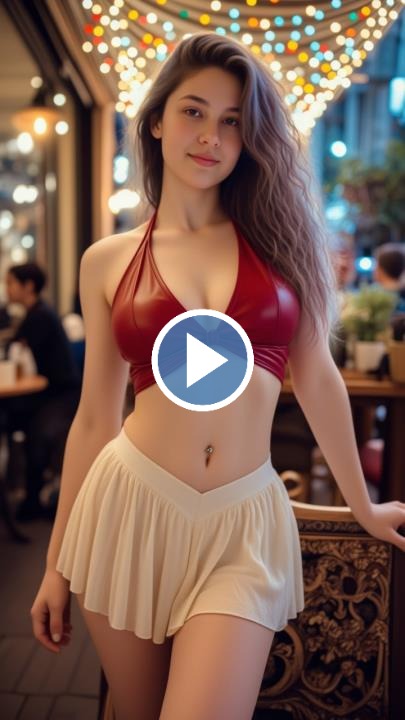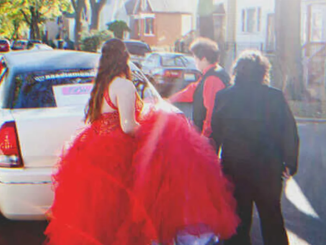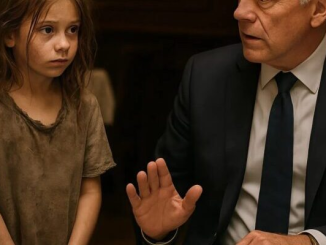
Her body seemed to have broken, as if a mechanism had suddenly stopped working. Like a fragile ship on the border between two worlds: water and air. Breathless, timeless, only a pain that burns in memory, even in her own name. In the fog of consciousness, where dreams intertwine with reality, Alla suddenly understands: she is on the brink of life and death.
From somewhere nearby, a voice is heard, muffled, blurred, as if through water. The voice of her husband, Kolya, filters through the noise:
— “Allochka… wait… don’t go…”
The words spread out as if the boundaries of the world had blurred. Light falls from above; cold lamps flash brightly. Strange hands do something quickly and surely. Someone commands:
— Pressure! Heart! Quick!
This professional, slightly hurried voice evokes both fear and a barely perceptible hope.
How she just wants to close her eyes, tune out everything, not hear either the doctors’ orders or Kolya’s broken whisper. Inside, a question arises: “Is it worth the fight?” And the answer: a tremor of fear, strangely reminiscent of fatigue. Deep within her, vague images of the past flicker, sounds of distant cities, the warm voice of a loved one.
But Alla can’t scream, sigh, or cry; consciousness fades again. Another wave comes, and everything becomes easier.
She returns to a fragmented reality: flashes of light, a thick silence, rough sheets. Alla barely understands where she is: at times she feels as if she’s floating in water, and suddenly she’s in a hospital ward. The monitors click uniformly; on the other side of the window, a gray morning slowly dawns. She seems to move between worlds, trying to grasp brief moments of the present.
And then, someone is near. A girl, tiny and fragile as a stalk. Probably about six years old. She moves clumsily, her clear eyes staring:
“It’s Katya. Are you sleeping or dead?”
“No… I’m not dead,” Alla says with difficulty.
“Fine,” the girl sighs, relieved. “Because it’s so boring here.”
In those childish words, there is suddenly a warmth, the kind only strong children have. Katya talks about kindergarten, where everyone is mean, about a mother who is never there for her, and about a grandmother who bakes pancakes.
Alla listens as if from afar. Inside her, a familiar pain awakens: the longing for her own little girl, one worth fighting for. But the children never came, and now there is only emptiness and bitterness for what was lost.
Katya takes her hand and whispers:
“I’ll come tomorrow. But don’t die, okay?”
The girl disappears behind the door, dissolving into the light. Alla returns to the darkness, but now with a new sensation: a cautious, almost unfamiliar anticipation.
Another return, clearer. Warmth, new smells, the air becomes a little lighter. The room has changed: by the window, a stranger. He approaches, leaving behind a trail of freshness and anxiety.
“Are you awake yet? Excellent, Alla. I’m your family doctor, Yuri Anatolyevich.”
His voice is gentle, but his gaze is professional, without excessive emotion, but also without cruelty. Alla realizes: she’s alive. But for how long? Her whole body hurts so much that the thought terrifies her.
“Your condition is serious, but we’re seeing improvements. You’re overcoming it. If you keep fighting, everything will be fine,” he says, like a son speaking to his mother.
Alla tries to ask about Kolya. Was he nearby? Yuri hesitates, but then says:
“Now it’s important to take care of yourself. Sometimes men get lost in these situations. He left a long time ago.” And, to be honest, she wasn’t interested in your condition.
Her head is pounding: resentment and pain mixed with a new, still faint desire to endure. The doctor takes her hand, firm and confident:
“If you want to live, you can overcome any pain. I will help you. But the decision is yours alone. Decide why you want to get up.”
For a moment, she wants to return to the darkness. Alla closes her eyes: no strength, no faith, only longing and the desire to forget everything.
“Shall we continue?” Yuri asks.
“Yes,” she answers almost in a whisper.
When she wakes, Alla feels as if she’s in another world. The room has become quieter, the light dimmer, the pain fading. Morning brings not only light, but a strange, gentle hope. She turns her head and sees Katya. She’s there again: sitting by the window, tracing invisible circles on the glass with her finger.
“You came…” Alla whispers, trying not to disturb the moment.
“Of course. Now I’ll come see you every day until you’re fully recovered.”
A silence hangs between them, not heavy, but light as a sigh. Then Katya asks timidly:
“Do you have children of your own?”
Alla remains silent for a long moment before answering:
“No… It didn’t work out. And where is your mom?”
Katya lowers her gaze:
“She left me. Alive.”






Leave a Reply